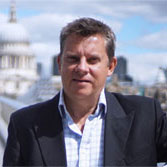On a bend in a river in remote western Cambodia's Cardamom Mountains, there is a floating hotel...

I dived into the water from the decking in front of my room and enjoyed the refreshing treat of a swim on a hot, sunny day. The water was glass-surfaced, slow-flowing, the temperature perfect; and time spread out before me like a childhood summer break. Looking back to the room was a dreamy sight, too. It was safari-style and posh, a khaki tent on a bend in the river below the Cardamom Mountains. And the real revelation was that I was so utterly relaxed — in Cambodia.
Cambodia is a wonderful country to visit — enthralling, moving and fascinating — but relaxing it is not. Now, though, for the first time, there’s a perfect place for a restful finale.
The country’s two must-see sights are hardly chillout zones. The vast complex of temples at Angkor is stupendous, but you need to make an early start to avoid the hottest sun or sharpest downpours, and there’s lots of walking. It’s tiring and sweaty going; and, although three or four days is about right to cover the best bits; weighty guilt awaits anyone tempted to truant by the hotel pool.

The tents are private enough for honey-mooners, the bar is informal enough for anyone in the mood to make friends Then there’s the capital, Phnom Penh, with its colonial-era facades and pretty palaces. These are truly lovely, but it’s a noisy and chaotic city, and the Khmer Rouge relics are harrowing.
The appalling cruelty of the former Tuol Sleng prison and the callous brutality of the killing fields aren’t easily brushed off. So the savviest travellers catch planes to Thai or Vietnamese beaches before their journeys home. It’s a big deal that, at last, Cambodia can offer a luxury hideaway within its own borders.
Enter the 4 Rivers Floating Lodge — a 12-room river lodge with no temple temptations and no killing fields. So roll on swimming, reading and relaxing in the sun — all guilt-free.

That may sound a world away from civilisation, but 4 Rivers is only a 30-minute slow-boat ride from the Tatai bridge. The bridge is part of the main road between Phnom Penh (3-4 hours’ drive away) and Ko Kong, near the Thai border (less than half an hour away). The Thai city of Trat, from where you can take a short flight to Bangkok, is 90 minutes further on.
The tented rooms each cover 500 sq ft, with a bedroom/lounge area, and a large bathroom off to one side, where there’s a double washbasin and a Japanese-style wood-barrel shower with hot water. Each has coconut-tree furniture, a rattan chaise longue, Vietnamese silk rugs and Finnish glassware. The tents come from South Africa and were designed for posh safari lodges. There’s no phone signal, but you will find free wi-fi and a flat-screen television.
This inventive scheme is the brainchild of Valantin Pawlik, a no-nonsense marine engineer from Romania. When I asked him how a Romanian came to build a floating hotel in the middle of the Cambodian jungle, he sipped his cold beer from the can and said: “Like all Romanians, I wanted to work in Paris. I got a job there, and the company asked me to run ferryboats on the Mekong River, in Cambodia. ‘Sure,’ I said. ‘Where’s Cambodia?’”
He now lives in Phnom Penh and is proud of his project. It feels four-star and boutique. The tents are private enough for honeymooners, while the decked common area, with a rattan-furnished restaurant/bar, is informal enough for anyone in the mood to make friends.

It isn’t a wilderness lodge in a pure sense, though — after all, people do live in Cambodia’s remote southwestern corner. The islet of Ko Andet, opposite the lodge, is home to several families — their houses are hidden behind thick forest, but they use a rickety single-file jetty in plain view. The night-time soundscape includes the odd plop of a briefly airborne fish, gecko calls and an exotic cacophony of crickets, but also the thrump-thrump from the engine of a passing sampan, and always the distant hum of a generator. That may make eco-warriors bristle, but it’s fine for your average eco-whittler, like me.
True, the generator and the lodge sampans are fuelled by dirty diesel, but 10% of the lodge’s power comes from solar panels, the toilets feed into underwater cisterns and much of the furniture is made from local materials. Fourteen of the 21 staff come from local villages, too.
You don’t want to be too fidgety in a place like this, as there isn’t much to do, or much space for walking, come to that. There is a little library of books and DVDs, but it’s the restaurant and bar that are the real focus beyond your room. The chef caters to most palates. Breakfast is chosen from a small à la carte menu, with dishes such as spicy chicken noodles and poached eggs, lunch is light and sundowners start at £3.40. Evening meals include local dishes such as amok (lightly curried fish) with green mango sauce and rice, or beef fillet with whisky sauce.
The lodge’s romantic, bayou-style seclusion and super-friendly staff make it feel homely, and to interrupt the routine of reading, swimming and sunbathing feels like an effort.

It’s worth it on occasion, though. I took a boat trip to a large waterfall, kayaked to a nearby colony of fireflies and joined my fellow guests for a voyage to Ko Sra Lau, a fishing village on stilts 45 minutes downstream. Weaving through the shallows on the way — the banks crowded by pristine forest, the scent of hibiscus and salt hanging in the breeze — I asked Allan and Margaret, a couple of Aussies, what they thought of the lodge. “Ah, look,” said Allan, the sunnily disposed owner of a construction company in Adelaide, “this place has turned our holiday around. Before here, we were at a wedding in Ireland, on a driving holiday in France, and then sightseeing here in Cambodia — and they felt like a bit of a chore by comparison.”
Two British honeymooners, Cat and Jamie, said it was “pretty much perfect”.

We moored at the village and clambered out. It was intimate — with rough wooden planks connecting some of the houses, and many of the doors and windows open to look through. I padded through the lanes warily, as if I had woken early after staying over at a friend’s place. We needn’t have worried. Soon, children ran out to say hello, and the kindly smiles from the women mending the fishing nets melted any discomfort.

When the time came to leave the lodge for good, I splashed out of the river, dried off and left my tent as late as I possibly could. Allan was right: walking along the decking in shoes for the first time in four days did feel like a chore. I said my goodbyes to the staff, and to Valantin; and, as my sampan chugged upriver, I stared back, watching the lodge grow smaller and smaller until it was obscured by lush green forest.
I’ve been to Cambodia before, but this time I departed more relaxed, more revived — and reluctantly.
***
I travelled as a guest of Ampersand Travel. Other tour operators featuring the hotel include Silk Steps Silk Steps and Abercrombie & Kent
 |
Reasons to be cheerful: |
 |
Always check your government's travel advice before booking, and check that your travel insurance is valid in this country. See here for the British Foreign and Commonwealth Office advice. |
 |
Getting there: the floating lodge is 278 kilometers from the Cambodian capital of Phnom Penh, but it's a fairly grueling 4-5 hour drive. The eastern Thai city of Trat is 157 kilometers away, which is about a 90 minute drive, not including the time it takes to cross the border. |
Further information: see 4 Rivers Floating Lodge, and for general country info see Tourism Cambodia





